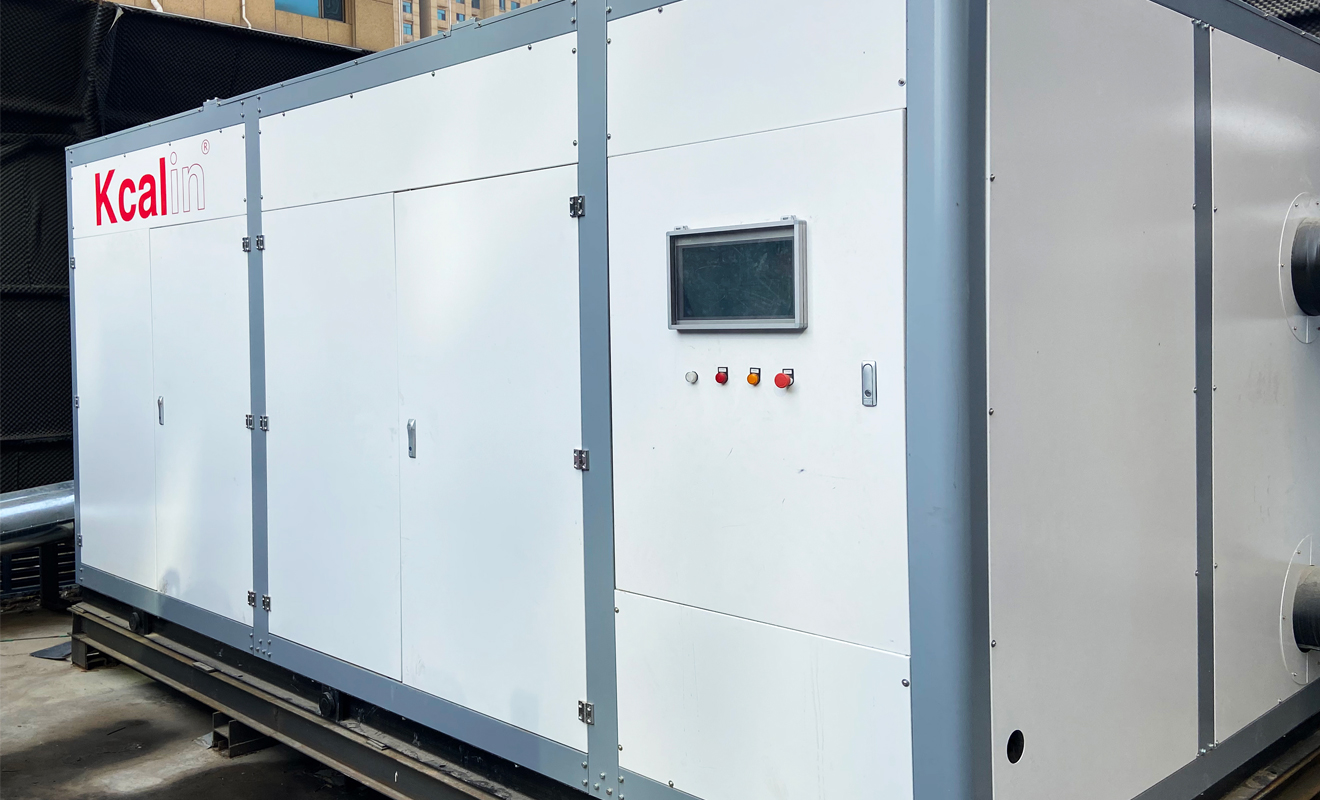Air source heat pump is a new type of energy utilization equipment that can be used in various fields such as heating, refrigeration, and hot water supply. In hot water supply system engineering, air source heat pumps can effectively improve the efficiency of hot water supply, reduce energy consumption, and reduce usage costs.
The principle of an air source heat pump hot water system is to use heat pump technology to absorb heat from the air, increase temperature through a series of processes such as compression and condensation, and ultimately transfer heat to the hot water. The main components of an air source heat pump include evaporator, compressor, condenser, and expansion valve.
Compared to traditional hot water supply systems, air source heat pumps have the following advantages:

Efficient and energy-saving: Air source heat pumps use the heat in the air to heat water without burning fuel, thus significantly reducing energy consumption and achieving efficient and energy-saving.
Environmental protection and low-carbon: Air source heat pumps do not produce harmful substances such as exhaust gas and wastewater, which meet environmental requirements and have a positive effect on improving environmental quality.
Easy installation: The air source heat pump does not require pipeline connection, only needs to be connected to the power supply to use, making installation and maintenance convenient.
Strong applicability: Air source heat pumps are suitable for various environments, whether it is cold winter or hot summer, and can work normally.
Stable and reliable: The air source heat pump adopts STS technology and high-quality materials, with stable and reliable performance and long service life.
In hot water supply system engineering, air source heat pumps can be applied in the following fields:
Residential buildings such as hotels and guesthouses: Air source heat pumps can provide hot water supply for residential buildings to meet the living needs of residents.
Hospitals, schools, and other public buildings: Air source heat pumps can provide hot water supply for public buildings, providing daily life and work needs.
Swimming pools, bathrooms, and other places: Air source heat pumps can provide hot water supply for swimming pools, bathrooms, and other places to meet people's fitness and leisure needs.
Industrial production: Air source heat pumps can be applied to hot water supply in industrial production processes, such as food processing, printing and dyeing, chemical industry, and other fields.
In practical applications, air source heat pumps also have some shortcomings. For example, the heating efficiency of an air source heat pump will decrease as the ambient temperature decreases, requiring additional power support. In addition, air source heat pumps may experience frost in low-temperature environments and require regular cleaning and maintenance.
Overall, air source heat pumps have broad application prospects in hot water supply system engineering, which can improve energy utilization efficiency, reduce usage costs, and also reduce environmental pollution, in line with the trend of modern and low-carbon social development.







Comment